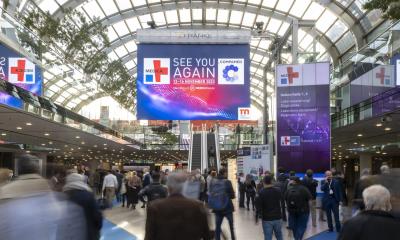BVMed's autumn survey is encouraging
'More jobs in the med-tech sector despite pressure to lower prices'
Job offerings in the medical technology sector in Germany continue to rise, despite increasing price pressure, according to results from a recent survey conducted by the German medical-technology association BVMed. Encouragingly, these show that, in 2008, 55% of the med-tech companies created additional jobs and roughly 30% of the companies kept a stable head count.

This development translates into approximately 4,200 new jobs, said BVMed Chairman of the Board Dr Meinrad Lugan and its Managing Director Joachim M Schmitt.
72 med-tech companies, among them the 20 largest manufacturers of the consumer goods industries, participated in the survey, answering 14 key questions.
However, compared to 2007 figures, the overall climate in the med-tech industry have significantly worsened. While overall sales revenues grew 5.4% (2007: 7%) continuing price pressure and skyrocketing raw materials costs plus energy price rices ate away at sales growth. For 2008, around 37% of the companies expect a better result than in 2007, but 28% expect worse results. Net profits in the med-tech industry are low, according to BVMed. As far as healthcare policy is concerned, most companies demand more flexible reimbursement systems. They also suggest patient responsibility be increased by introducing patient contribution models, and they demand more options for the insured.
The surveyed companies invest on average 7.2% of their sales revenues in research and development. Looking only at the research conducting firms (excluding the distributors) this value increases to an impressive 9%. Around 84% plan to launch new products and procedures – a clear indication of the industry’s innovation potential, BVMed reported. ‘The majority of these new products is quite obviously in the in-patient sector.’
Germany remains a valuable location for med-tech companies because many interviewees commended the high quality of patient care (67%), the number of well-trained physicians (56%) and the high quality of clinical research (50%). However, cause for complaint was the low reimbursement level in Germany compared to other European countries.
The major obstacle for further growth is, according to 70% of the surveyed firms, the price pressure exerted by buyer organisations. Increasing raw materials and energy prices rank second on the obstacle list (49%).
Dr Lugan added: ‘If we want to ensure long-term funding of the statutory health insurances, we have to look at new options – for example, a tax break for statutory health insurance members. If we promote medical progress, do this in a more coordinated way and pay increased attention to quality aspects, medical-technology companies will continue to drive the healthcare system for the benefit of the patients.’
The current ‘Branchenbericht Medizintechnologie’ by BVMed can be downloaded from http://www.bvmed.de/stepone/data/downloads/25/c2/00/branchenbericht08_10.pdf
20.11.2008









